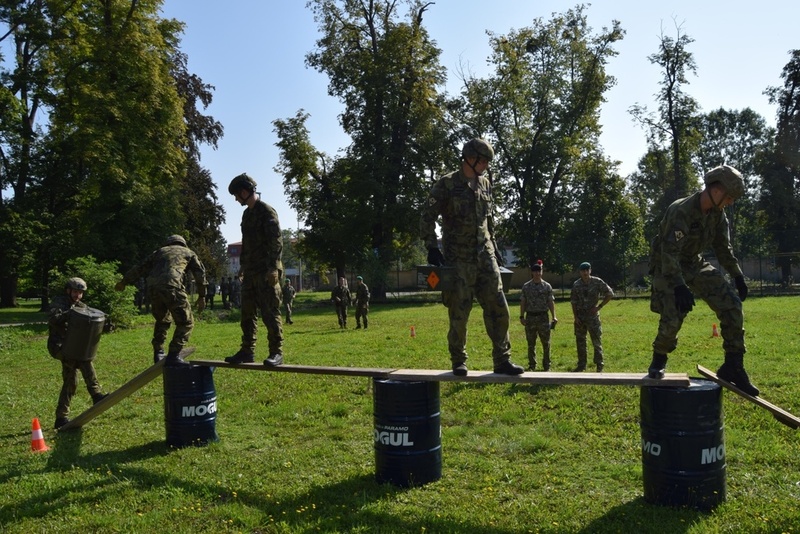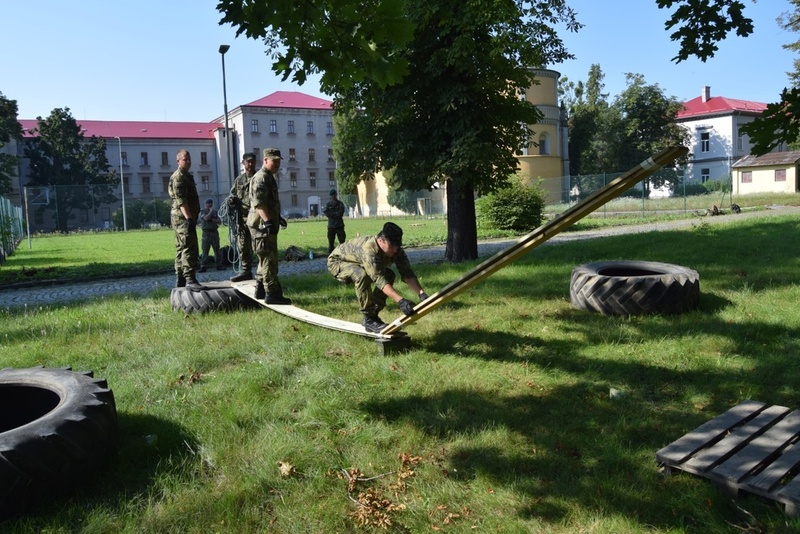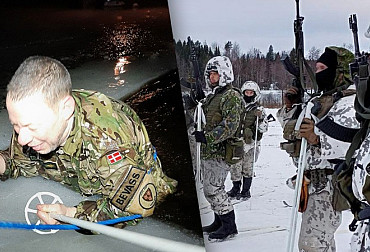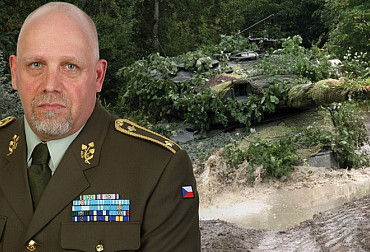How to Persuade Soldiers to Fight? The Commander Must Have Authority
Members of the British Military Advisory Training Team (BMATT), who have been involved in the training of Czech soldiers since 2000, visited the 71st Mechanized Battalion in Hranice. They organized training of commanders at the lowest ranks.
"This year, our battalion is allocating troops to the NATO Rapid Reaction Force, and it was necessary to speed up the training of commanders who command a squad, for example," explained the course organizer, Captain David Kremlička.
 Picture: Right at the start of the course, the British captain explained to the soldiers that the precondition for the success of the course is their personal interest in learning something new | army.cz
Picture: Right at the start of the course, the British captain explained to the soldiers that the precondition for the success of the course is their personal interest in learning something new | army.cz
Quick decisions and authority are key
A total of 30 commanders had been improving their command of small units and leadership of subordinates for four weeks. "Above all, every commander must have natural authority," names Kremlička the key feature of an ideal leader, adding: "He/she must also be able to make quick decisions and command. Not everyone can do that.”
Unlike, for example, a brigade commander, who commands through subordinate commanders and has advisers – staffs at hand when making decisions, it is paradoxically more difficult for a team commander. "A small unit has from four to eight soldiers, depending on the type of army and task. That is why the one who controls them is so important. It is he/she who consciously sends a soldier to extreme danger in combat, which of course he/she is aware of and must be able to do. And in peace, in training, he/she must be able to convince colleagues of the same age that it is necessary and that they must do so.”

Picture: One of the preparation methods - team-building activities | army.cz
In order for the soldiers to obey their colleague-commander, it is also necessary, according to Kremlička, to have a perfect knowledge of all the weapons and other means at the commander’s disposal, in addition to quick and effective decision-making.
The British rely on an individual approach in training
The course was led by Captain Harry Mallalieu, who divided the students into three groups. Everyone had their own professional English lecturer. "This ensures the most individual approach on which our procedures are based. Through a number of methods and forms of training, based primarily on the mutual cooperation of students, our instructors try to make their ability to lead and manage subordinates more efficient so that they are able to work independently with their teams. After the necessary theoretical preparation, the soldiers had to try out the newly acquired observations in practice," said Mallalieu.

Picture: It is not only physical strength that is necessary to complete the task, but also the consultation on how to complete the task | army.cz
The course participants first had to explain the task they were given and discuss with their comrades how to complete it. They practised the ways of searching the terrain, reconnaissance of objects, preparation of traps and raids, organizing tactical transfers, creating combat units, using various types of signals or how to handle the dead. The whole course was carried out in English and everyone was continuously evaluated and constantly checked.
Not only orders, but also explanations
"I am definitely glad that I was included in this course," says Sergeant Lukáš Kratochvíl, Commander of the swarm of the 3rd Mechanized Company. "Suddenly I see the position of commander through slightly different lenses, both in terms of tactics and in terms of different approaches to leading subordinates. I see the importance of briefly explaining your intention instead of just a strict order. In addition, I was able to compare our training system with the system of the British Army, which is very similar, but there are certainly little things that we could use in our country.”

Picture: The course participants took turns in command of the swarms and squads made up of their course colleagues | army.cz





















